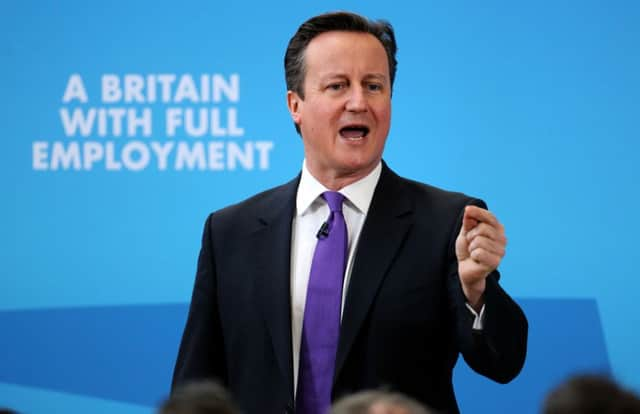UK the '˜absolute leader' in tackling tax avoidance - PM


The Prime Minister has been under intense pressure over his family’s tax arrangements following the Panama Papers data leak, which reportedly included details about his late father Ian’s tax affairs.
Details of a move by the premier to water down the effect of EU transparency rules on trusts despite warnings it could create a loophole for tax dodgers have also left him facing fresh criticism.
Advertisement
Hide AdAdvertisement
Hide AdBut Mr Cameron told students during a visit to Exeter that he had put tax avoidance at the top of the agenda during his chairmanship of the G8 group of leading nations.
“Britain has been an absolute leader on this and we will continue to do it,” he added.
The Financial Times revealed that the Prime Minister successfully argued in 2013 for trusts to be treated differently to companies in anti-money laundering rules.
In a letter to then European Council president Herman Van Rompuy, Mr Cameron said it was “clearly important we recognise the important differences between companies and trusts”.
Advertisement
Hide AdAdvertisement
Hide AdHe wrote: “This means that the solution for addressing the potential misuse of companies, such as central public registries, may well not be appropriate generally.”
Dutch MEP Judith Sargentini, who led the European Parliament’s work on the draft law, told the FT that the UK used privacy arguments to justify a different status and that she had seen it “as a danger and as a possible loophole”.
But a Government spokesman said the stance was taken because of concerns that seeking to apply true “beneficial” owner registers to trusts “would distract from action against those areas of most concern, such as shell companies”.
“In practice, these further changes weren’t achievable. In the subsequent negotiations, we were able to secure a sensible way forward which ensures that trusts which generate tax consequences have to report their ownership to HMRC.”